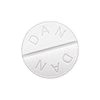Drug Overview
Commonly known as Benadryl, the medication’s active ingredient is diphenhydramine, which is primarily utilized to alleviate symptoms of allergies, common colds, and for inducing sleep due to its sedative properties.
Therapeutic Uses
Diphenhydramine, marketed as Benadryl, is indicated for the relief of nasal and non-nasal symptoms of various allergic conditions such as hay fever, urticaria (hives), and angioedema. It is also effective in the management of common cold symptoms, including sneezing, itching of the nose or throat, and runny nose. Additionally, due to its sedative effects, it can be beneficial in promoting sleep or for the treatment of motion sickness.
Administration Advice
Dosage of Benadryl varies depending upon the age and condition being treated. For adults and children aged 12 years and over, the typical oral dose is 25 to 50 mg taken every 4 to 6 hours. For children’s dosages, it is critical to adhere strictly to the guidelines on the packaging or those provided by a healthcare provider to avoid complications.
Benadryl is available in several forms, including tablets, capsules, and liquid. They should be taken with or without food. For individuals using the liquid form of this medication, a special measuring device/spoon should be used to ensure the correct dosage. In the case of treating motion sickness or inducing sleep, Benadryl should be taken 30 minutes before exposure to the triggering event or bedtime.
Usage Restrictions
This drug should not be taken by individuals with a known hypersensitivity to diphenhydramine or any of the inactive ingredients contained in Benadryl. It is also contraindicated in persons with narrow-angle glaucoma, peptic ulcers, prostatic hypertrophy, bladder neck obstruction, stenosing peptic ulcer, symptomatic prostatic hypertrophy, bladder neck obstruction, or during an asthma attack.
Safety Measures
Consumers should exercise caution when using Benadryl if they have a history of breathing problems such as emphysema or chronic bronchitis, glaucoma, heart disease, high blood pressure, liver disease, or an overactive thyroid gland. The sedative effects of Benadryl can cause drowsiness or dizziness, impairing the ability to drive or operate machinery. Alcohol and other central nervous system depressants should be avoided as they can increase the sedative effect. Caution is also advised in older adults, as they may be more sensitive to the side effects of the drug, particularly drowsiness, dizziness, and low blood pressure.
Medicinal Interactions
Benadryl can interact with various other medications, enhancing sedation when combined with drugs like opioids, muscle relaxants, sedatives, hypnotics, or other antihistamines. It can also interact with monoamine oxidase inhibitors (MAOIs), which could potentially lead to an increase in anticholinergic effects such as dry mouth, urinary retention, and constipation.
Possible Side Effects
Adverse reactions can occur with the use of Benadryl and may include drowsiness, dizziness, constipation, blurred vision, dry mouth/nose/throat, decreased coordination, or upset stomach. Serious side effects are rare but may comprise heart palpitations, seizures, difficulty urinating, or experiencing severe dizziness. If any of these severe symptoms occur, prompt medical attention is needed.
Overdose Measures
Overconsumption of Benadryl can result in symptoms such as extreme drowsiness, seizures, difficulty breathing, or loss of consciousness. Overdose is particularly dangerous in children and can be fatal. Immediate medical assistance is crucial if an overdose is suspected. Treatment of an overdose involves supportive care, which may include measures to clear the drug from the body and to manage the symptoms presented.
Storage Instructions
Benadryl should be stored at room temperature, away from light and moisture, and out of reach of children. Tablets and capsules should be kept in their original packaging until it is time to take them. The liquid formulation should not be used if it becomes cloudy or contains particles.
Patient Education
Healthcare providers should advise patients of the potential side effects of Benadryl, including drowsiness and the risk of operating machinery or driving. Instructions on the appropriate dosage, particularly for children, are crucial. Patients should also be advised to inform their physician of all medications they are currently taking to prevent possible interactions.
Supply & Manufacturing
Diphenhydramine, under the brand name Benadryl, is widely available and can be purchased over the counter without a prescription. It is manufactured by numerous pharmaceutical companies and is readily obtainable in most drug stores and supermarkets. Its availability in various forms such as tablets, capsules, and liquid allows consumers to select the form that best suits their needs.





Reviews
There are no reviews yet.